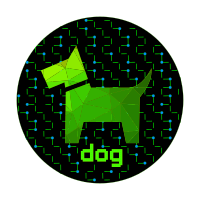
dog_trainer
dog_trainer is the central server component of dog, a centralized firewall management system.
- Runtime Dependencies
- Build Dependencies
- Certificate Creation
- RethinkDB setup
- RabbitMQ setup
- App setup
- Install
- Run
- Logs
- Deploy Agents
Runtime Dependencies
- linux 4.x+ (Ubuntu 22.04 tested)
- diffutils
- coreutils
- rabbitmq-server 3.7+
- rethinkdb 2.3.6+
- git
Build Dependencies
- erlang 24
Certificate Creation
If you already have a CA and per-server certs, you can reuse them, or buy new ones (costly). You can create your own self-signed certs with your own Certificate Authority.
One option to get you started is: https://github.com/relaypro-open/csc
RethinkDB setup
Install RethinkDB
sudo apt install rethinkdb=2.3.6~0xenial
Setup clustering
For high availability, setup replication: sharding-and-replication
RethinkDB security
RethinkDB’s web console doesn’t require authentication, but you can use oauth2_proxy oauth2-proxy for that purpose.
Create database tables and indexes
Automatically created on dog_trainer start.
Import default Services
Definitions for some well known services can be imported.
rethinkdb import -f /opt/dog_trainer/scripts/default_services.json --table dog.service
RabbitMQ setup
install RabbitMQ
sudo apt install rabbitmq-server=3.7.17-1
Copy and edit config
cp config/rabbitmq/rabbitmq.conf /etc/rabbitmq/
#edit rabbitmq to reflect location of certs and
#you should replace PRIVATE_IP with an IP that is not accessible via the
#pubilc internet.
cp config/rabbitmq/enabled_plugins /etc/rabbitmq/
restart rabbitmq-server
Create virtual host and admin users
#edit setup_rabbitmq.sh, define variables.
script/setup_rabbitmq.sh
Networking
Create DNS service names
It’s useful to create service names for the dog_trainer clients to connect to.
You may want to create one for each type of connection:
- rabbitmq clients: To force rabbitmq connections over private networks in EC2, create this service name as a A Record with the private IP of your server as its value.
- dog_park (gui) clients
Federate multiple brokers to connect to multiple regions
You can deploy multiple rabbitmq servers across regions, using the federation plugin to replcate client queues and exchanges. You can then connect your agents to these distributed rabbitmqs via their local private IPs, avoiding having to have agents connect to a rabbitmq in another region across the public internet. RabbitMQ federation
Install
Create directories:
./install.sh
Use github Release archive
github.com builds releases for Ubuntu x86
Download latest release archive: https://github.com/relaypro-open/dog_trainer/releases
Extract archive to /opt/dog_trainer/
Create configuration file /etc/dog_trainer/dog_trainer.config, based on this template:
[
{dog_trainer, [
{keepalive_alert_seconds, 60}
]},
{sync, [
{growl, none},
{log, [warnings, errors]},
{non_descendants, fix},
{executable, auto},
{whitelisted_modules, []},
{excluded_modules, []}
]},
{lager, [
{handlers, [
{lager_console_backend,
[none,
{lager_default_formatter, [time,
" [", severity, "] ", pid, " (", {turbine_id, "non-turbine"}, ") ==> ", message, "\n"]}]},
{{lager_file_backend, "error_log"}, [{file, "/var/log/dog_trainer/error.log"}, {level, error}]},
{{lager_file_backend, "console_log"}, [{file, "/var/log/dog_trainer/console.log"}, {level, info }]}
]},
{crash_log, "/var/log/dog_trainer/crash.log"},
{tracefiles, [
]},
{async_threshold, 10000},
{sieve_threshold, 5000},
{sieve_window, 100}
]},
{thumper, [
{substitution_rules, []},
{thumper_svrs, [default, publish]},
{brokers, [
{default, [
{rabbitmq_config,
[
{host, "DOG_RABBITMQ_HOST"},
{port, 5673},
{api_port, 15672},
{virtual_host, <<"dog">>},
{user, <<"dog_trainer">>},
{password, <<"PASSWORD">>},
{ssl_options, [{cacertfile, "/opt/dog_trainer/priv/certs/rabbitmq/ca/cacert.pem"},
{certfile, "/opt/dog_trainer/priv/certs/rabbitmq/client/cert.pem"},
{keyfile, "/opt/dog_trainer/priv/certs/rabbitmq/client/key.pem"},
{verify, verify_none},
{fail_if_no_peer_cert, true}
]},
{broker_config,
{thumper_tx,
["/opt/dog_trainer/priv/broker.tx"]}}
]}]},
{publish, [{rabbitmq_config, default}]}
]},
{queuejournal,
[
{enabled, true},
{dir, "/var/db/dog_trainer/queuejournal"},
{memqueue_max, 10000},
{check_journal, true}
]
}
]},
{erlcloud, [
{aws_config, [
{ec2_host, "ec2.us-east-1.amazonaws.com"}
]}
]}
].
Build Release Deploy
$ rebar as $ENV tar
#copy tar to system, extract to /opt/dog_trainer
Run
Setup systemd service
cp config/dog_trainer.service /lib/systemd/system/dog_trainer.service
systemctl enable dog_trainer
systemctl start dog_trainer
Logs
/var/log/dog_trainer/